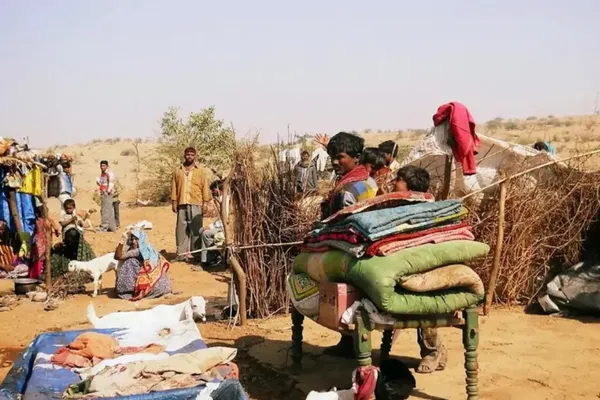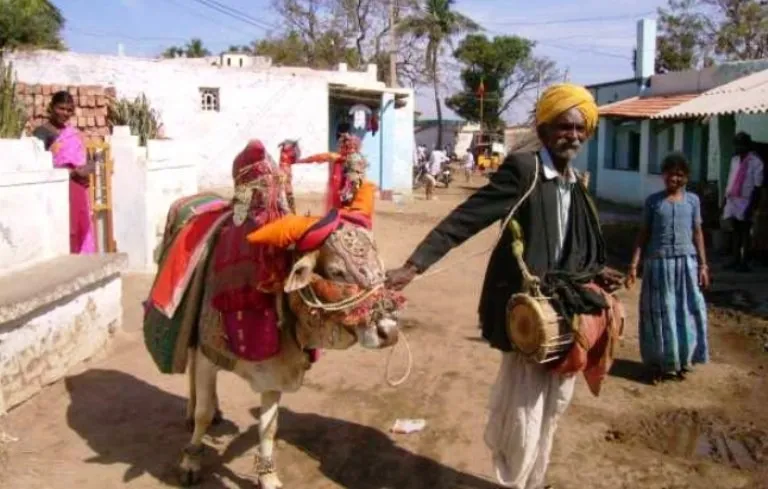The National Human Rights Commission (NHRC) has recently emphasized the urgent need to adopt and implement the recommendations of the Idate Commission report.
Key Highlights from NHRC’s Recent Focus:
- NHRC calls for setting up a permanent commission for Nomadic, Semi-Nomadic, and De-Notified Tribes (NTs, SNTs, and DNTs), as recommended by the Idate Commission.
- The NHRC recognizes the challenges faced by these people due to historical stigma, primarily from the Criminal Tribes Act, 1872, and Habitual Offenders Act, 1952.
- Habitual Offenders Act, 1952: The act can either be repealed or a representative from the De-notified Tribe community shall be included with the nodal officers.
- The Habitual Offenders Act defines a habitual offender as someone who has been convicted and sentenced to imprisonment more than twice in five years.
- There is a necessity to change the colonial mindset that labels De-Notified Tribes as having “criminal tendencies.”
- The documentation process for these communities must be boosted to ensure they receive welfare scheme benefits.
- Issues like the lack of citizenship documents among De-Notified communities must be discussed.
- NHRC suggests measures to overcome the difficulties faced by these communities, including ensuring their representation in parliament, government institutions, and higher education.
- Special attention to the women and children of these tribes, must be highlighted citing their unique challenges and needs.
About Idate Commission Report:
- The commission was established in 2015 to promote the planned development of NTs, SNTs, and DNTs, with Bhiku Ramji Idate as the chairperson.
- It recognized these communities as the ‘poorest among the poor’ and unanimously stressed on specific programs for their development.
- It is outlined in the interim report for education, housing, infrastructure, health facilities, microfinance, and skill development.
Key Recommendations:
- Establishment of a Permanent Commission: This would include community leaders, IAS officers, and subject experts to address ongoing issues and provide consistent support.
- Separate Department/Directorate: For each state to ensure effective administration and coordination for the development of these people.
- Census and Proactive Data Collection: It emphasized conducting a detailed census for accurate data on their population for policy formulation.
- Strong safeguards: It asked for constitutional protections like extension of the Protection of Atrocities Act to these communities.
- Representation: It proposed that due representation in Political Bodies would ensure partnership in the decision-making process.
- Sub-Quota: A sub-quota or a separate category within existing quotas could address the non-representation issues in education, employment, and other spheres.
- Removal of Anomalies: In order to address categorization anomalies and rationalize classifications based on ethnographic studies and due procedures.
About De-notified Tribes in India:
- The term ‘De-notified Tribes’ stands for all those communities that were once notified under the Criminal Tribes Acts, enforced by the British Raj between 1871-1947.
- These Acts were repealed in 1952, and these communities were “De-Notified”.
- The terms- nomads and semi-nomads are applied to ‘social groups who undertook frequent, or seasonal physical movement as part of their livelihood strategy in the recent past.
- The term semi-nomad is mostly used to describe those sections of nomads whose duration, distance, and frequency of movement are comparatively less than others.
Ref: Source
| UPSC IAS Preparation Resources | |
| Current Affairs Analysis | Topperspedia |
| GS Shots | Simply Explained |
| Daily Flash Cards | Daily Quiz |



